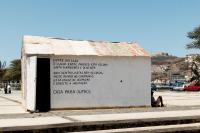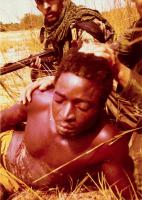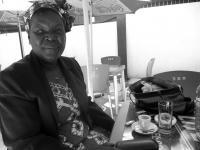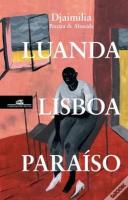litterature
Articles tagged with litterature
Tag Archive
- 1:54
- african screens
- african studies
- América Latina
- Ana Paula Tavares
- antropologist
- artistic
- Baía
- bell hooks
- Berlim
- Bienal de Coimbra
- biography
- black film festival
- Boca Fala Tropa
- Celeiro
- civil rights
- colonial war
- community
- Conceição Evaristo
- critica
- cultural diversity
- Cultural Programming
- cultures
- decolonial
- Desert Travel
- diáspora caboverdiana
- dj marfox
- Ella Baker
- émancipation
- Empresas
- end of the world
- espólio
- Exhibition
- Falcão Nhaga
- Felix Schumba
- feminism
- Flora
- fotography
- ghana
- Gilberto Freyre
- Histórias Contadas
- Irineu Destourelles
- Jornalism
- Kiluanji Kia Henda
- Lunda
- Manthia Diawara
- maputo
- marroco
- Meet
- memória
- memories
- morna
- museu das descobertas
- Museum Aljube
- myth
- nacionality
- Nicholas Mirzoeff
- nominals
- non-ficcional
- Nova Lisboa
- Noz de cola
- One World in Relation
- opinion
- patriarchy
- poesia caboverdiana
- poland
- police violence
- post-colonialism
- pscianálise
- Rachel Malaika
- reflecting Achille Mbembe
- resentment
- RESTITUTING ARTWORKS
- revista
- REVISTA JSF#2
- Ricardo Farinha
- rural
- Ruy Guerra
- Sado
- Samir Amin
- Sertões
- silence
- Sociedades Africanas
- sondagens
- Sophiatou Kossoko
- Stuart Hall
- Tchitundo-hulo
- The Current Situation
- The Right to Look
- Tourist
- turismo
- ultramar
- urbanism
- Viriato da Cruz
- William Kentridge
- works of art
- x
- Yonamine
- “home languages”
- “Libertação. Unidade e Luta”
 Two hours with Mia Couto in an engaging conversation that covers various aspects of his interests and career, his affective geographies, the diversity of peoples and their ways of life as inspiration for the stories, the environment, and the development model to be discovered, and how to treat nature not as a "resource". We talked about hard times of violence, and the utopia of Mozambican Independence. Literary subjects do not predominate, although the Mozambican author wishes he had more time to dedicate to writing. Also thinking about how to take the pleasure of reading further and how to help bring out new writers. A writer in the terrain.
Two hours with Mia Couto in an engaging conversation that covers various aspects of his interests and career, his affective geographies, the diversity of peoples and their ways of life as inspiration for the stories, the environment, and the development model to be discovered, and how to treat nature not as a "resource". We talked about hard times of violence, and the utopia of Mozambican Independence. Literary subjects do not predominate, although the Mozambican author wishes he had more time to dedicate to writing. Also thinking about how to take the pleasure of reading further and how to help bring out new writers. A writer in the terrain.  What is at stake in Djaimilia Pereira de Almeida’s book are the living, human ruins of empire. No longer based on the figure of the veteran or the returnee, but on someone from the other side of the line colonialism traced: a black man and, in this case, the complex figure that colonialism generated, the assimilated African who, here, for the first time in Portuguese literature, is at the centre of the narrative.
What is at stake in Djaimilia Pereira de Almeida’s book are the living, human ruins of empire. No longer based on the figure of the veteran or the returnee, but on someone from the other side of the line colonialism traced: a black man and, in this case, the complex figure that colonialism generated, the assimilated African who, here, for the first time in Portuguese literature, is at the centre of the narrative.  ‘The Missing Face’ is a powerful reflection on the war, and above all on the ownership of traumatic experiences of conflict, specifically at the end of Portuguese colonialism in Africa.
‘The Missing Face’ is a powerful reflection on the war, and above all on the ownership of traumatic experiences of conflict, specifically at the end of Portuguese colonialism in Africa.  Paulina Chiziane (Majacaze, 1955) is surely one of the most prominent figures of current Mozambican literature, and not just that. She is an essential reference for the country’s feminist movements, a woman who confronted particularly conflictual aspects of African cultures in her literary works with startling intensity, developing themes that no one else wants to hear or discuss, not in the private sphere, much less in the public or political spheres. These are silenced themes, taboos, especially painful, pending and unresolved subjects, such as the Mozambican civil war, women’s rights in polygamy and black magic.
Paulina Chiziane (Majacaze, 1955) is surely one of the most prominent figures of current Mozambican literature, and not just that. She is an essential reference for the country’s feminist movements, a woman who confronted particularly conflictual aspects of African cultures in her literary works with startling intensity, developing themes that no one else wants to hear or discuss, not in the private sphere, much less in the public or political spheres. These are silenced themes, taboos, especially painful, pending and unresolved subjects, such as the Mozambican civil war, women’s rights in polygamy and black magic.  Their story becomes the usual story of many immigrants coming from the old colonies in search of medical treatment or of a better life. In Angola, Cartola was a midwife. In Lisbon, he became a construction janitor, and the city made him indecisive and gloomy. Aquiles, who was still a teenager when he switched country, no longer felt Angolan.
Their story becomes the usual story of many immigrants coming from the old colonies in search of medical treatment or of a better life. In Angola, Cartola was a midwife. In Lisbon, he became a construction janitor, and the city made him indecisive and gloomy. Aquiles, who was still a teenager when he switched country, no longer felt Angolan. 